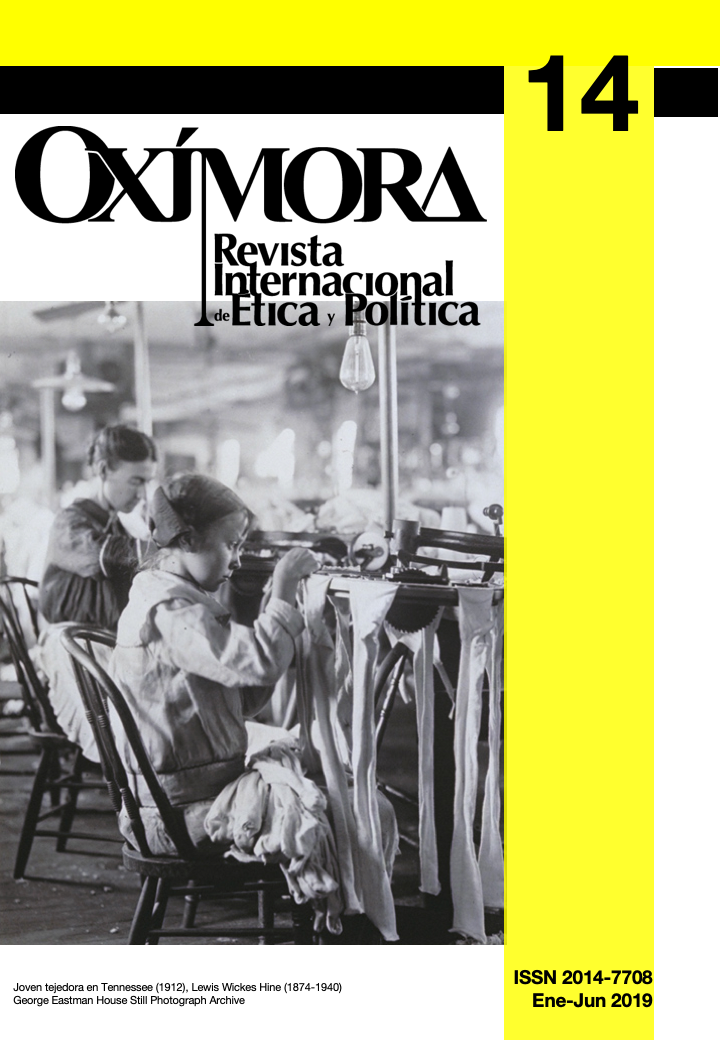Origin and Meaning of the Right to Work: Between the Right to Existence and the Right to the Fruits of Labour
DOI:
https://doi.org/10.1344/oxi.2019.i14.27013Keywords:
Right to work, Right to existence, Right to the fruits of labour, Robespierre, Louis BlancAbstract
In February 1848, the provisional French government published a decree in which it committed itself to “guarantee the existence of the worker through work”. During the following months, a long and vigorous debate on the right to work took place in the National Assembly. The aim of the text is to explain the meaning of this right at this historic moment. Did it consist in the commitment on the part of the State to give a job to the unemployed? Or was it, instead, a more ambitious demand? Does the right to work of 1848 have anything to do with the idea that workers have the right to the fruits of their labour? To answer these questions we will go back to the French Revolution, when the discourse of rights burst onto the political scene, and we will trace some of its transformations in the following years.
Downloads
Published
How to Cite
Issue
Section
License
a) Authors retain copyright and grant the journal the right of first publication.
b) Texts will be published under a Creative Commons Attribution License that allows others to share the work, provided they include an acknowledgement of the work’s authorship, its initial publication in this journal and the terms of the license.



